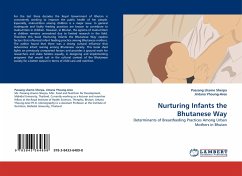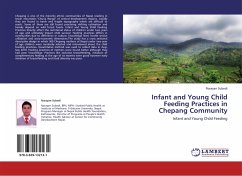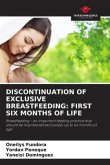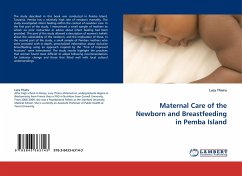For the last three decades the Royal Government of Bhutan is consistently working to improve the public health of her people. Especially, malnutrition among children is a major issue. In general inadequate and faulty feeding practices are known to contribute to malnutrition in children. However, in Bhutan, the egnima of malnutrition in children remains unresolved due to limited research in the field. Therefore this book 'Nurturing Infants the Bhutanese Way' explore factors that influnced infant feeding practice among Bhutanese mothers. The author found that there was a strong cultural influence that determines infant rearing among Bhutanese society. This book shed lights on previously unreported factors and provides a ground work for researchers and stake holders equally, in designing and implementing programs that would suit in the cultural context of the Bhutanese society for a better output in terms of child care and nutrition.
Bitte wählen Sie Ihr Anliegen aus.
Rechnungen
Retourenschein anfordern
Bestellstatus
Storno








